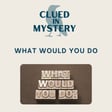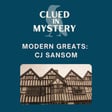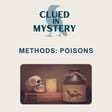
White Collar Crime (part 1)
Fraud, money laundering, and Ponzi schemes can make for fascinating mysteries. In this episode, Brook and Sarah discuss white collar crime in fiction and in real life.
Discussed and mentioned
White Collar Crime (1949) Edwin H. Sutherland
Catch Me If You Can (1980) Frank Abagnale Jr. and Stan Redding
Catch Me If You Can (2002 film)
Owning Mahowney (2003 film)
Panama Papers - The Laundromat (2019 film)
A Death in Cryptoland (podcast about Gerald Cotten and Quadriga)
American Greed (television series - MSNBC)
Red Team Blues (2023) Cory Doctorow
Antique Hunter's Guide to Murder (2024) C.L. Miller
The Water Rat of Wanchai (2011) Ian Hamilton
The Accountant (2016 film)
The Firm (1991) John Grisham
Margin Call (2011 film)
Boiler Room (2000 film)
Erin Brockovich (2000 film)
The Missing American (2020) Kwei Quartey
The Talented Mr. Ripley (1955) Patricia Highsmith
Tracers in the Dark (2022) Andy Greenberg
For more information
Instagram: @cluedinmystery
Contact us: hello@cluedinmystery.com
Music: Signs To Nowhere by Shane Ivers – www.silvermansound.com
Sign up for our newsletter: https://cluedinmystery.com/clued-in-chronicle/
Join the Clued in Cartel for as little as $12 USD/year: https://cluedinmystery.com/clued-in-cartel/
For a full episode transcript, visit https://cluedinmystery.com/white-collar-crime/

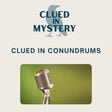
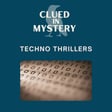

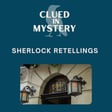

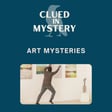

![[Bonus] Thursday Murder Club preview image](https://media.zencastr.com/cdn-cgi/image/width=112,quality=85/image-files/61e1c276e3ec42007857cff9/e51be644-e446-4d32-b89c-12bfc60d30e9.jpg)
![[Re-release] Hallmark Mysteries and More (part 2) image](https://media.zencastr.com/cdn-cgi/image/width=112,quality=85/image-files/61e1c276e3ec42007857cff9/edbc4a22-ebb8-42cb-b211-1f94f4cb920f.jpg)
![[Re-release] Golden Age Author: Ngaio Marsh image](https://media.zencastr.com/cdn-cgi/image/width=112,quality=85/image-files/61e1c276e3ec42007857cff9/782f9391-308c-4bad-9197-749bef7d8bd1.jpg)

![[Re-release] Hallmark Mysteries and More (part 1) image](https://media.zencastr.com/cdn-cgi/image/width=112,quality=85/image-files/61e1c276e3ec42007857cff9/57bb1653-1df6-4119-8a26-b354258d4329.jpg)

